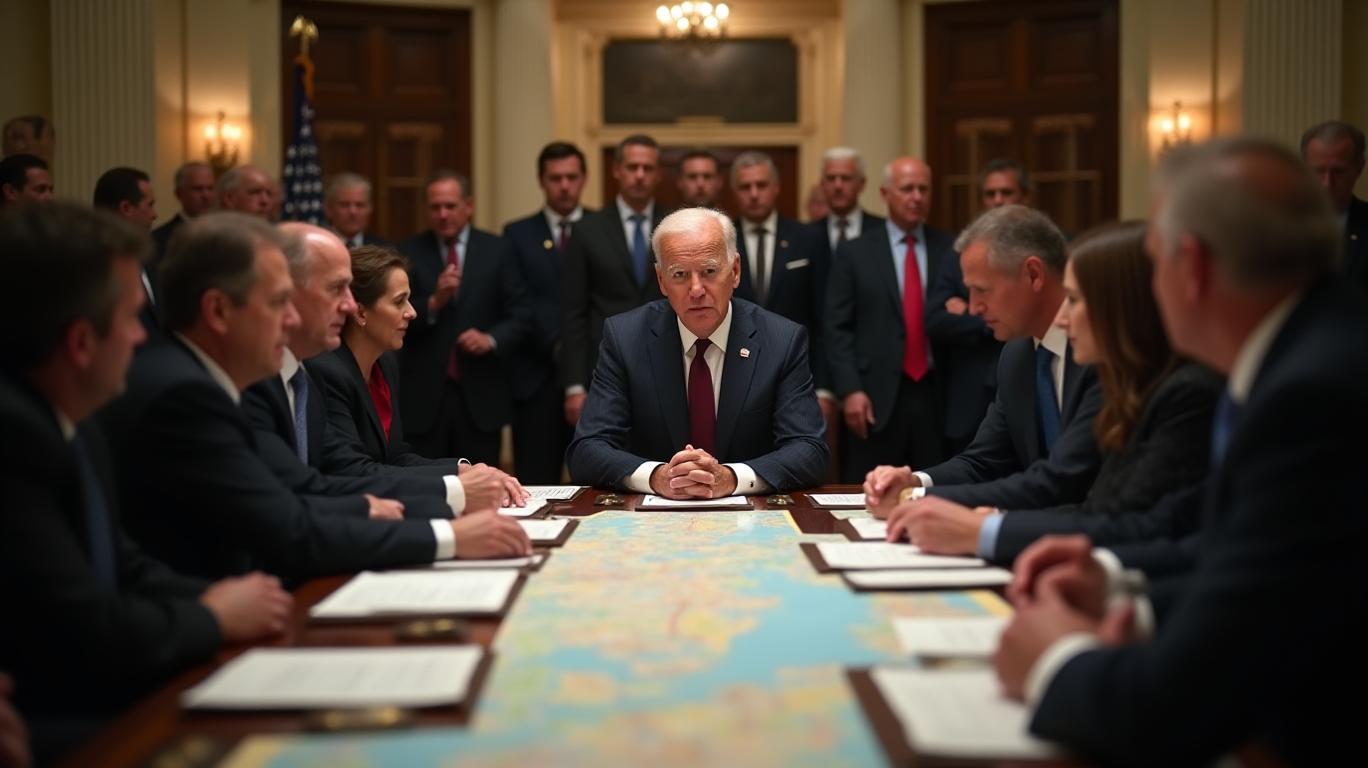White House Forms Task Force to Address Tariff Crisis
The White House has announced the formation of a taskTASK-- force to urgently address the crisis stemming from the imposition of high tariffs on Chinese goods. This move comes as the Trump administration grapples with the potential supply chain disruptions and economic fallout from these tariffs. The task force is expected to include key figures such as Vice President Mike Pence, Treasury Secretary Steven Mnuchin, Commerce Secretary Wilbur RossROST--, and White House National Economic Council Director Larry Kudlow. The specific details of the task force's composition and responsibilities are still being finalized, but the urgency of the situation has prompted swift action from the administration.
The decision to form this task force underscores the growing concern within the White House about the economic impact of the tariffs. The high tariffs imposed on Chinese goods have raised fears of a supply chain crisis, which could have far-reaching consequences for both the U.S. and global economies. The task force is tasked with mitigating these risks and finding solutions to the challenges posed by the tariffs.
The formation of the task force is a significant development in the ongoing trade dispute between the U.S. and China. It signals a recognition within the Trump administration that the tariffs, while intended to address trade imbalances and intellectual property concerns, have the potential to cause significant economic harm. The task force will likely focus on identifying ways to minimize the disruption to supply chains and to support American businesses and consumers affected by the tariffs.
The move also highlights the complexity of the trade relationship between the U.S. and China. The two countries are the world's largest economies and have deeply intertwined supply chains. Any disruption to this relationship can have ripple effects across the global economy. The task force's efforts will be closely watched by businesses, economists, and policymakers around the world as they seek to navigate the uncertain trade landscape.
In response to the U.S. tariffs, China has also taken measures to counter the economic pressure. The Chinese government has announced retaliatory tariffs on U.S. goods, escalating the trade tensions between the two nations. This tit-for-tat approach has further complicated the situation, making it more challenging for both sides to find a resolution. The Chinese government has emphasized its commitment to defending its economic interests and has vowed to take all necessary measures to protect its industries and consumers from the adverse effects of the U.S. tariffs.
The formation of the task force by the White House is a clear indication of the administration's recognition of the severity of the situation. The task force will need to work diligently to address the immediate challenges posed by the tariffs and to develop long-term strategies to mitigate the risks. The success of the task force will depend on its ability to coordinate efforts across various government agencies and to engage in constructive dialogue with China to find a mutually beneficial solution.
The ongoing trade dispute between the U.S. and China has far-reaching implications for the global economy. The two countries are major trading partners, and any disruption to their trade relationship can have significant consequences for other nations. The task force's efforts will be crucial in determining the outcome of the dispute and in shaping the future of U.S.-China trade relations. The world will be watching closely as the task force works to address the crisis and to find a path forward in the complex and evolving trade landscape.

Stay ahead with real-time Wall Street scoops.
Latest Articles
Stay ahead of the market.
Get curated U.S. market news, insights and key dates delivered to your inbox.



Comments
No comments yet